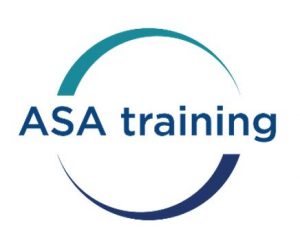Our company Conflict of Interest Policy refers to any case where an employee’s personal interest might contradict the interest of ASA. This is an unwanted circumstance as it may have heavy implications on the employee’s judgement and commitment to the company, and by extension to the realisation of its goals.
ASA recognises the importance of providing a framework in which conflicts of interest are identified, disclosed and managed appropriately and is committed to building a workplace that is free from fraud or corruption or the perception of fraud or corruption.
This policy has been developed because conflicts of interest may arise, and do not need to present a problem to employees or ASA if they are openly and effectively managed. For these reasons it is important that all employees share a responsibility for strengthening this commitment to identify, disclose and manage conflicts of interest appropriately.
Having a conflict of interest does not necessarily amount to a breach of this policy. However, failure to disclose a conflict of interest may constitute a breach.
This situation may take many different forms that include, but are not limited to, conflict of interest examples:
- Employees’ ability to use their position with the company to their personal advantage
- Employees engaging in activities that will bring direct or indirect profit to a competitor
- Employees owning shares of a competitor’s stock
- Employees using connections obtained through the company for their own private purposes
- Employees using company equipment or means to support an external business
- Employees acting in ways that may compromise the company’s legality (e.g. taking bribes or bribing representatives of legal authorities)
- Employees that have a relative that is undertaking a qualification
- Employees assessing the work of a friend, acquaintance or family member undertaking a qualification
- Employees undertaking a qualification that is being assessed internally by an ASA colleague
Student Assessment – Conflict of Interest
All reasonable steps should be taken to avoid any part of the assessment of a Student (including IQA) being undertaken by any person who has a personal interest in the result of the assessment. Where, having taken all such reasonable steps, an assessment by such a person cannot be avoided, arrangements should be made for the relevant part of the assessment to be subject to scrutiny by another person.
Where a qualification is being taken by an ASA colleague and is being also assessed internally, ASA will report any such undertaking to the relevant awarding organisation, for example NCFE or City & Guilds.
All employees must declare any work they are undertaking that may be considered a conflict of interest.
The relevant person will then:
- Assess the nature of the conflict
- Assess the risk or threat to ASA functions
- Decide whether the conflict warrants further action/mitigation to be taken
- Decide what steps to take to avoid or manage the conflict or adverse effect
There may need to be a discussion between the person notifying the potential conflict and the relevant person. The purpose of the discussion is to reach a decision about how the conflict will be managed. ASA will firstly try to eliminate the conflict, by assigning another member of staff to undertake the activity. By doing so, this reduces the risk of assessments being compromised and ultimately assessments being voided. Where elimination is not possible due to financial or/and resource implications, ASA will put measures in place which can demonstrate that the conflict is being managed effectively so as not to compromise the outcome of the assessment.
The possibility that a conflict of interest may occur can be addressed and resolved before any actual damage is done. Therefore, when an employee understands or suspects that a conflict of interest exists, they should bring this matter to the attention of management so corrective actions may be taken. Managers must also keep an eye on potential conflict of interests of their team.
In general, employees are advised to refrain from letting personal and/or financial interests and external activities come into opposition with the company’s fundamental interests.
Disciplinary Consequences
In cases when a conflict of interest is deliberately concealed, disciplinary action may be invoked up to and including termination.






